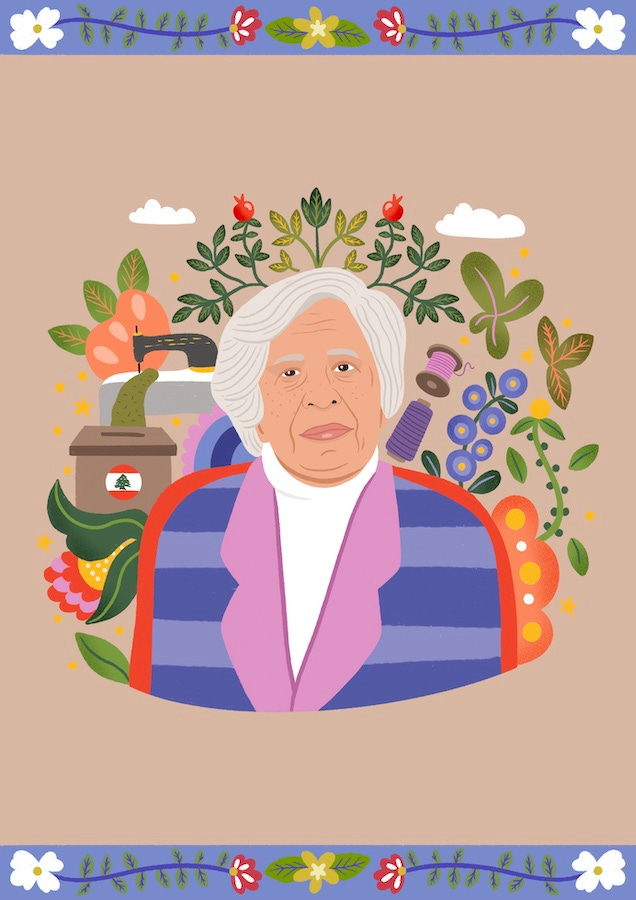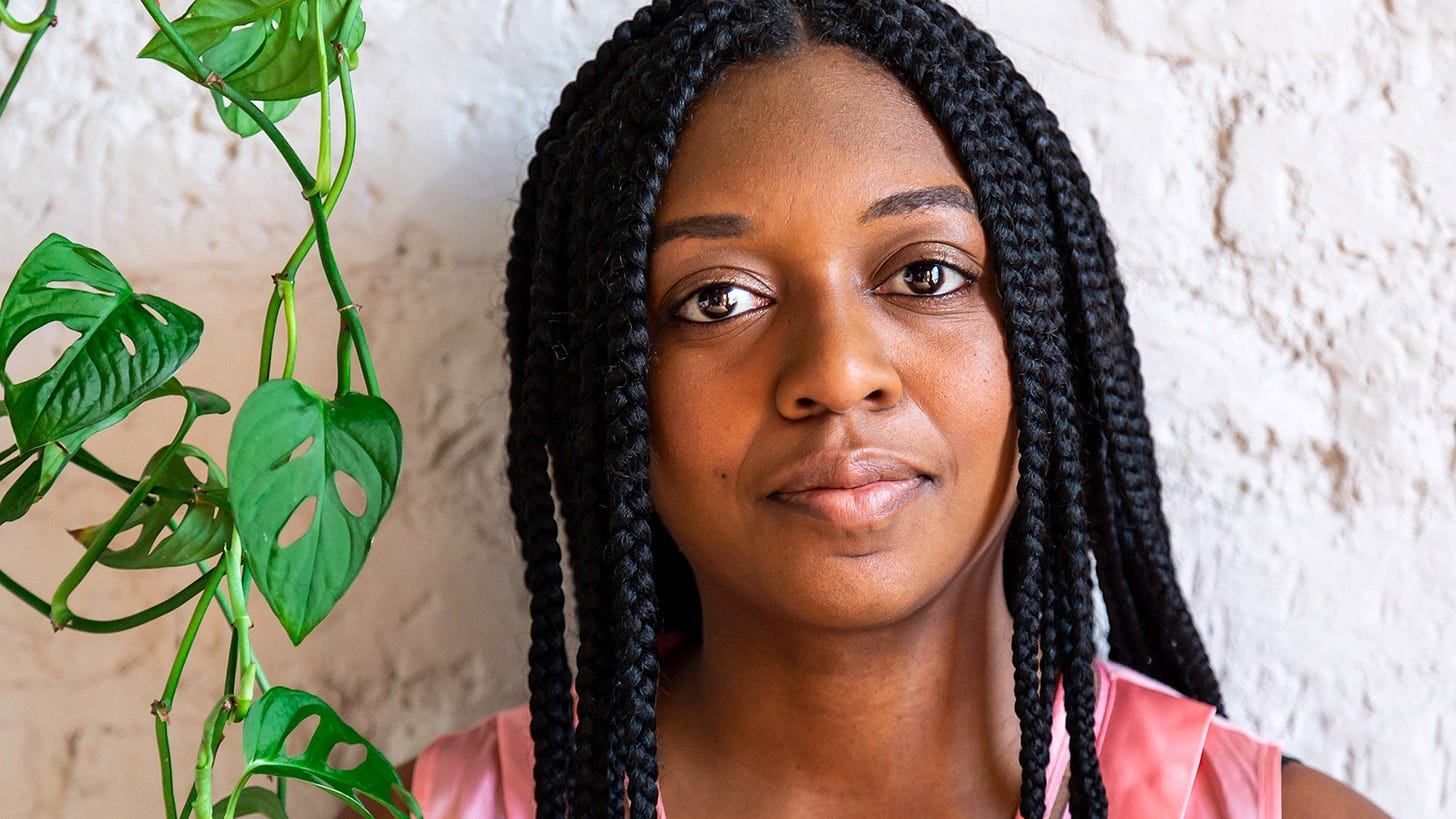Global Roundup: The Gambia FGM Ban Under Threat, Queer Venezuelans in Colombia, Book on Pioneering Arab Feminists, Two-Spirit Inuit Youth, Black Women & “Excellence”
Curated by FG Contributor Samiha Hossain
Women who used to carry out female genital mutilation march against the practice in Wassu, the Gambia, in 2014. Photograph: UNFPA
Political and religious leaders in the Gambia are threatening to introduce a bill to decriminalise female genital mutilation, eight years after the practice was outlawed. Activists and civil society organisations said the move would be hugely regressive.
[The] Gambia took a bold step in 2015 towards eradicating FGM, so for us to go back after eight years and start again would have very, very big implications for the country. -Fallou Sowe, Network Against Gender-based Violence national coordinator
73% of women aged between 15 and 49 have undergone FGM, according to the Gambia’s demographic health survey 2019-20, and 65% were cut before they were five. Under the current law in the Gambia, a person convicted of performing FGM faces up to three years in prison, a fine of 50,000 dalasi (£622), or both. Where FGM leads to death, the perpetrator could face life imprisonment.
Debate began in late August after three women were convicted of FGM in the Central River region – the first prosecution under the 2015 law – and ordered to pay a fine of 15,000 dalasi or spend a year in jail. A few days later, an Islamic cleric paid the fines and encouraged Gambians to continue to practise FGM. The issue was then debated at the national assembly in September, where there were calls to repeal the law.
Fatou Baldeh, a survivor of FGM and founder of Women in Liberation and Leadership, a Gambian civil society organisation, said she was already seeing the impact. In the past couple of weeks, she and her team have been chased out of three communities by people accusing them of “challenging our own cultures, norms and religion”, she said. Baldeh fears that if the law on FGM is repealed, other laws protecting women and girls, such as the one forbidding marriage under 18, may be targeted.
We had broken the culture of silence on FGM. We’ve moved backwards…Other countries might use this tragic experience as a way to challenge their countries not to pass laws that protect women against harmful traditional practices. -Fatou Baldeh
Charloth Chirino poses for a portrait in her apartment in Medellín. Originally from Maracaibo, Venezuela, Charloth has been living in Colombia for seven years, three of those in Medellín. She has lived her life as a proud trans woman since she was 15 years old, when she also began working as a sex worker. Lexi Parra for NPR
Due to the ongoing socio-political crisis in Venezuela, nearly 7 million people have left the country in the past decade. Displaced, often moving numerous times across Latin America, Venezuelans have been met with hostility and a lack of jobs. Being queer in the region only complicates that reality. Many end up in Colombia due to proximity and cultural similarity.
Recently, cities like Medellín have become a stopover as people plan their route to the United States, rather than a final destination. Medellín is a bustling cultural and technological hub of Colombia, investing in transportation, infrastructure and the arts while promoting progressive and inclusive rhetoric that transformed it into a destination for digital nomads and queer tourists. The city's progressive reputation and modern infrastructure have made it a hot spot. Several queer migrants in Colombia share their experiences with NPR – three stories will be highlighted here.
Charloth Chirino, 35, first left Venezuela over six years ago, during the height of the crisis. Charloth has become known for her roles as a mother, friend and activist for the LGBTQ+ community in Medellín. At only 15 years old, Charloth began to transition with the support of her family. She made it a habit to open up her home to friends who weren't so lucky. Charloth has worked as a sex worker since her transition.
It's not less dangerous here. Do you know how many girls I know who've just ... disappeared? In Venezuela, it was more of a territory thing. Here, anybody can get you. -Charloth Chirino
While Charloth doesn't think she'll stay in Medellín forever, she has found community through Caribe Afirmativo Corporation — a nonprofit focused on human rights for all that works in various parts of Colombia. In Medellín, the Caribe Afirmativo Corporation is specifically focused on helping queer migrants. Through Caribe, Charloth has co-founded a collective called Intragender, bringing light to domestic violence among the queer and trans community.
David Enrique Salcedo, 28, was used to new places, having moved around Venezuela a lot as a kid. As a fem-boy, he refused to make himself smaller to avoid harassment. That same attitude has gotten him through a lot of moments of harassment in Medellín, but not because of his sexuality or how he dresses — because of where he's from. He recalls being insulted and blackmailed by a boss, so he quit.
Taysha Sofia Milgraos Barroso Vera, 26, never felt like Venezuela was home and she doesn't dream of going back. Most of her friends have emigrated, so what would she go back to, she wonders. In Medellín, where she's lived for years now, she's found meaning through her friends, her partner, Carolina, and her activism work.
I feel like my activism, my whole identity defines me more than 'migrant.' I'm more than that. -Taysha Sofia Milgraos Barroso Vera
A new book aims to shed light on pioneering feminists from the Arab world from the 19th century to the present day. The book, which is aimed at children, contains brief but informative profiles of 12 women who devoted their lives to politics, literature, law, and education. The Arabic-language version was released in a free, digital format over the summer. Physical copies were recently published and an English-language version called “Brave and Bold” is on the way too.
There’s always this misconception that feminism is foreign to the region; that it’s a Western idea trying to ‘invade’ our traditions and morals. People forget that many (changes) that have taken place in the region are because of Arab feminists who pushed for girls to have the right to go to school or for adult women to be able to vote and work outside their houses. -Samantha Elia, Beirut-based project manager
What links the 12 women portrayed in “Brave and Bold,” Elia says, is that “they all struggled for basic rights in a deeply patriarchal society,” whether that was Syria, Lebanon, Sudan, Egypt, or elsewhere. Iraqi pioneer Dr. Naziha Al-Dulaimi was born in 1923. As the book explains, she became her country’s first female minister and argued passionately for women’s right to initiate divorce proceedings and to protect children from forced marriage. For Elia and her colleagues, it was important to share these activists’ stories.
Amman-based illustrator Aya Mobaydeen designed the vibrant book, in which each portrait of the featured woman is surrounded by flowers and objects that defined their careers, from the pen to the voting box and scales.
I approached illustrating each woman in this project with lots of colors and details to make them appealing to children. I feel like being able to educate children about them through this book is truly fulfilling. These women have made a real difference, and I’m proud to highlight their accomplishments. -Aya Mobaydeen
Kuujjuaq, an Inuit town in northern Quebec in Canada, has been hosting 2SLGBTQ+ pride parades for the past few years – but Two-Spirit youth from the community say a lot of progress has yet to be made. Niivi Snowball, 16, said they’ve already made waves among the 2,700 people living in Kuujjuaq. At last year’s Aqpik Jam, they performed a song dedicated to their then-girlfriend.
For me as a musician, whenever I go through something like super traumatic or just an experience that like has stayed with me, as long as I get a good song ran out of it, then I think it was worth it. -Niivi Snowball
Niivi is Two-Spirit – for them, the term represents the duality of their gender and sexuality. They say they wake up feeling different every day – reflected in how they present themselves. Niivi has support from their chosen queer family. That includes Two-spirit youth Aputi Arnatuinak, who befriended queer people while they were still in the closet. Aputi said more education and pride events are needed in the community.
Aputi helped organize Kuujjuaq’s first-ever pride parade in 2021 with their friend Tobi Nashak, who is also a member of Niivi’s chosen family. Tobi came out as a trans man when he was 13 years old, but now he identifies as Two-Spirit, and is living in a town just outside Montreal for college. He has a traditional Inuit tattoo on his chin, a single vertical line, representing acceptance of femininity.
Despite the draw of larger cities, Niivi and Tobi want queer Indigenous people to stay connected to their roots while they’re exploring their identities.
After finally ripping off the Band-Aid and deciding that I am Two-Spirit and coming out as Two-Spirit, I’ve been like, so much more comfortable in my identity as an Inuk and as a trans person, because as Indigenous people and as trans people, those identities cannot be separated. -Tobi Nashak
Via Studio 22
For Black History Month in the UK, Kimberly McIntosh shares with Glamour an extract from her first book, “Black Girl, No Magic: Essays and Reflections on Living Whilst Black”. In the extract, McIntosh discusses the myth of “Black Excellence”.
Growing up, McIntosh thought that hard work alone was enough and believed in respectability politics.
The oft-repeated phrase, “You have to work twice as hard as white people,” the clarion call of immigrant parents, a descriptive comment, a demand and an instruction, is one of the earliest examples that I remember. But I misinterpreted that lesson…I worked the obligatory twice as hard. This was my path to the salvation of social mobility. Black people simply needed to be more excellent, and all our ills would evaporate. -Kimberly McIntosh
McIntosh goes on to discuss the unnecessary pressure always trying to be excellent can put on Black people. By the time she got to university, she realized excelling won’t do anything to stop racism or sexism. She acknowledges that life has been kind to her but that is not the case for many Black women in the UK.
Black people – and Black women – are not a monolith, and I do not, and cannot, represent us all. There is no one way to live a life and that is as true for Black people as it is for anyone. I hope my work encourages us to live our lives the way that suits us best, to try and do the right thing, to think beyond ourselves, own our choices and learn from them, and know that we have nothing to prove to anyone but ourselves and the people we love. -Kimberly McIntosh
Samiha Hossain (she/her) is an aspiring urban planner studying at Toronto Metropolitan University. Throughout the years, she has worked in nonprofits with survivors of sexual violence and youth. Samiha firmly believes in the power of connecting with people and listening to their stories to create solidarity and heal as a community. She loves learning about the diverse forms of feminist resistance around the world.








